I’m sure we all agree that birth is a normal, natural physiological function, right? We believe in our bodies and we believe in the innate wisdom of our babies to find their way through our bodies. Birth is natural.
But so are tornadoes!
The thing about natural birth is that you have to believe in it and trust it in order to achieve it. You have to invest in releasing any anxiety or fear (if it exists for you) and allow nature to take its course.
But what happens when things don’t go as planned? When the idea that birth is natural proves wrong? What happens when your birth plans are interrupted by complications? When the baby doesn’t seem to be tolerating labor or augmentation becomes necessary? Or any number of other variables that can cause birth to deviate from your plans?
A birth plan is a list of wishes; your wishes for what you decide is your best birth. And for some, it is based on the belief that birth is natural.
A birth plan begins with a philosophy. The word philosophy is best described as a theory or attitude held by a person or organization that acts as a guiding principle for behavior.
Some birth philosophies include:
- Spontaneous vaginal delivery; unmedicated, un-intervened at home
- Spontaneous vaginal delivery; unmedicated, un-intervened in a hospital
- Vaginal birth medicated in a hospital
- Surgical birth
- Any variation of birth that resonates with you
The best way to arrive at your personal philosophy is to determine what you value most and start doing your research from there. Take an introspective approach. So many people seek validation in their own decisions by encouraging others to do what they’ve done. Hearing someone say, “birth is natural” may not resonate for you and that’s ok. What is best for someone else, may not be what is best for you. Do your best to politely listen but really do some soul searching for your best answers.
If you are struggling to find your personal birth philosophy, shift your focus to answerable questions. You can do it one step at a time rather than by generalizing.
How do you feel about induction?
How do you feel about pain medication?
How do you feel about episiotomy?
How do you feel about freedom of movement during labor?
How do you feel about immediate skin-to-skin contact with your baby?
Ask yourself all of the questions that can arise during birth and early parenting and see if your answers align with a particular philosophy. Keep in mind, your philosophy may be an eclectic blend of many ideas!
When writing your birth plan or list of wishes, keep flexibility at the forefront of your mind. Your doula can also be a great sounding board as you sort this out!

